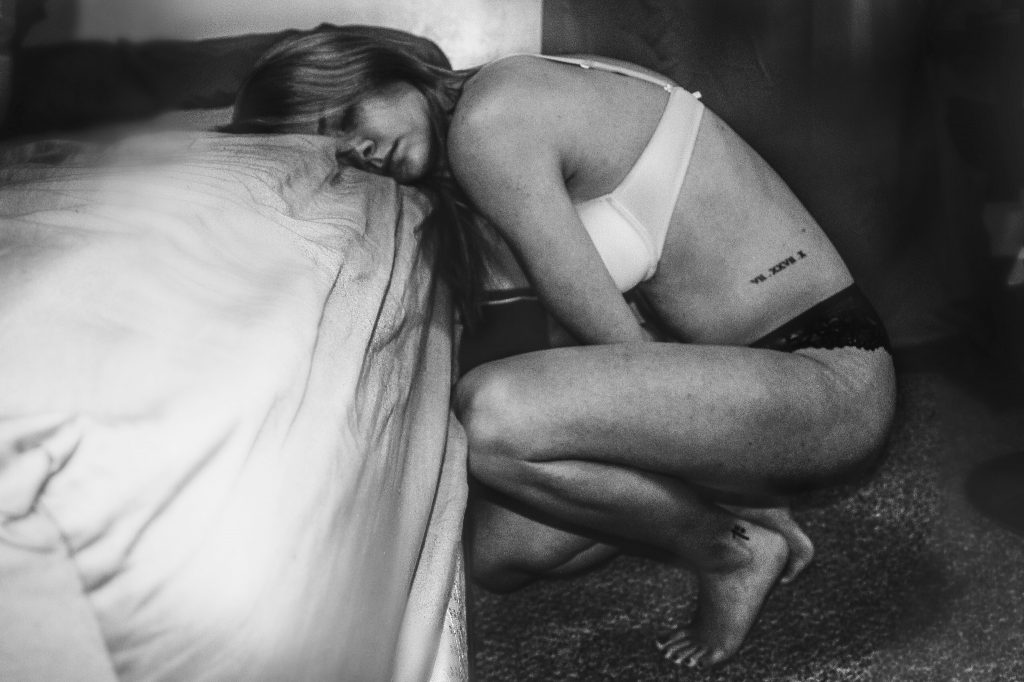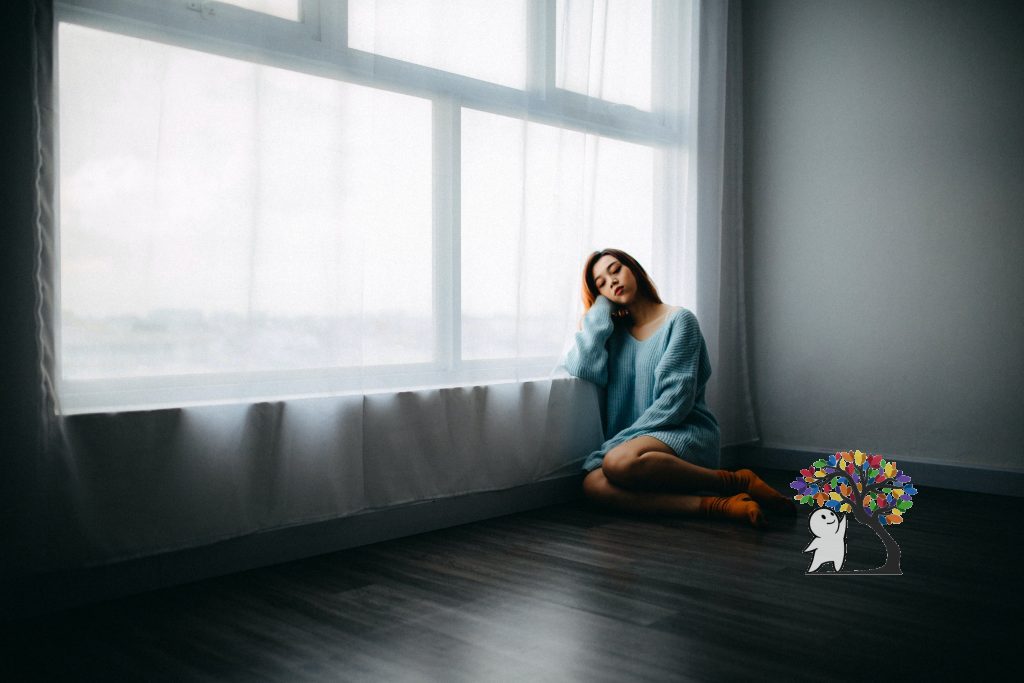6 Signs You’re Depressed, Not Lazy

Have you ever had days where all you wanted to do was lie down and do nothing? Wherein you felt like you’ve lost your sense of direction in life and didn’t know what else to do?
Of course you have! Because we all have our off days. We’ve all felt lazy, unmotivated, and uninspired from time to time. But we live in such a cut throat, hypercompetitive society so obsessed with the pursuit of wealth and success that it’s made us feel guilty for the time we spend not earning money or doing something productive. And because we’re only human of course, living a life of chronic stress and constantly overworking ourselves is bound to have some adverse effects on our mental and emotional well-being.
But what if it’s more than that? What if your laziness is about more than just emotional burnout? What if it’s already become something much more serious? Well, with that said, here are 6 warning signs to help you figure that out:
1. You can’t snap yourself out of it.
Laziness usually creeps up on us when we have something important to do or if we’ve been working ourselves too hard for too long. And there are a lot of nifty tips and tricks we can apply to snap ourselves out of it, like making a to-do list, listening to motivational talks, or setting achievable goals for ourselves. But depression? Depression isn’t a choice, and it’s definitely not something you can just “shake off” or “get over” – no matter what other people might wrongfully believe. Depression is a serious mental illness that needs to be treated with professional help and sometimes even medication. Oftentimes, depressive episodes recur throughout a patient’s life, so months of therapy may be needed (Lépine & Briley, 2011).

2. You can’t cheer yourself up.
Another clear sign that there may be more to your so-called “laziness” than you think is if you often struggle with feelings of unexplained loneliness, sadness, and hopelessness along with it. Not only are you exhausted and low in energy, but you also feel downcast and disheartened for reasons you don’t understand. Worst of all, nothing you do seems to cheer you up or make you feel better. No amount of sleep, comfort food, self-care activities, or fun times with friends seem to be doing much to brighten your spirits. Because when you’re battling depression, not even doing the things you used to love the most or spending time with your loved ones can make you feel better (Hammen, 2005).

3. You’ve lost interest in everything.
According to the American Psychological Association (2013), a “markedly diminished interest or pleasure in activities” is one of the hallmarks of a depressive episode. So if you’ve found that your “laziness” has made you lose motivation and interest in everything – not just school or work – then that should already be your first clue that something is seriously wrong. People suffering from depression tend to lose interest in their hobbies and emotionally withdraw from those around them. They prefer to stay at home and lie in bed doing nothing most days because they just can’t find it in them to care about anything anymore…which brings us to our next point…

4. You can’t function anymore.
Do you feel that your “laziness” is getting out of hand? Has it become too much for you to manage? Is it getting in the way of your work, your school, or your personal life? Is it already causing you a lot of problems? If you answered yes to any one of these questions, then you may be dealing with something much more serious than laziness. In diagnosing depression, psychologists tend to look for the “4 D’s of abnormality”: that is, deviance, distress, danger, and dysfunction. So if your “laziness” is making you dysfunctional and significantly interfering with your everyday tasks and living your life, then it may be time to see a mental healthcare professional about it.

5. Your “laziness” isn’t triggered by anything.
Oftentimes, laziness manifests as procrastination and may be brought about by a number of different reasons. Some believe it reflects a lack of self-esteem, while others would argue it’s because of a lack of positive recognition from others. It could also be due to a lack of discipline, self-control, and interest. But what about depression? What brings about depression? Well, the truth is, psychologists don’t really know. But one thing we do know for sure is that it isn’t usually triggered by one particular thing. There isn’t always a clear reason for why we develop it (Carter & Garber, 2011). So if you find yourself feeling down, disheartened, and unenergetic all of a sudden, this may be the reason why.

6. Your “laziness” isn’t a choice.
Finally, but perhaps most importantly, the key difference between depression and laziness is that laziness is changeable, while depression isn’t. If you’re feeling tired and unmotivated, you can do something about it. You can get some rest, brainstorm, look for inspiration, and try out different “productivity hacks” to help you get out of your funk. But with depression, it’s not that easy. Anyone who knows anything about clinical depression (especially those who’ve experienced it for themselves) will certainly tell you that it’s not something anyone would ever want to feel, and if they even had a choice, they’d snap themselves out of it in an instant. In fact, patients with depression often report feelings of extreme guilt, shame, and helplessness as well (Gotlib & Hammen, 2008), so don’t ever say that anyone with depression is “just doing it for attention.” Mental illness is so much more than that.

So, do you relate to any of the signs we’ve mentioned here? Have you been feeling really lazy lately and wondering if it was anything more serious? If you or anyone you know is experiencing serious feelings of depression, don’t hesitate to reach out to a mental healthcare professional today and get help. Because the earlier depression is diagnosed, the easier it will be to treat.
And if you liked reading about this topic and are interested in learning more, here are a few other articles for you: 6 Signs of Severe Depression, 5 Things You Should Know About Depression, 5 Early Signs of Depression, 6 Things People With Depression Can Relate To, 7 Differences Between Burnout and Depression, and 6 Differences Between Sadness and Depression.
References:
- American Psychological Association (2013). Diagnostic and Statistical Manual of Mental Disorders – 5th Edition. APA Publishing; Washington, DC.
- Lépine, J. P., & Briley, M. (2011). The increasing burden of depression. Neuropsychiatric disease and treatment, 7(Suppl 1), 3.
- Hammen, C. (2005). Stress and depression. Annu. Rev. Clin. Psychol., 1, 293-319.
- Beck, A. T., & Alford, B. A. (2009). Depression: Causes and treatment. University of Pennsylvania Press.
- Carter, J. S., & Garber, J. (2011). Predictors of the First Onset of A Major Depressive Episode: Stress and Negative Cognitions. Journal of Abnormal Psychology, 120(4), 779-796.
- Gotlib, I. H., & Hammen, C. L. (Eds.). (2008). Handbook of depression. Guilford Press.



Responses